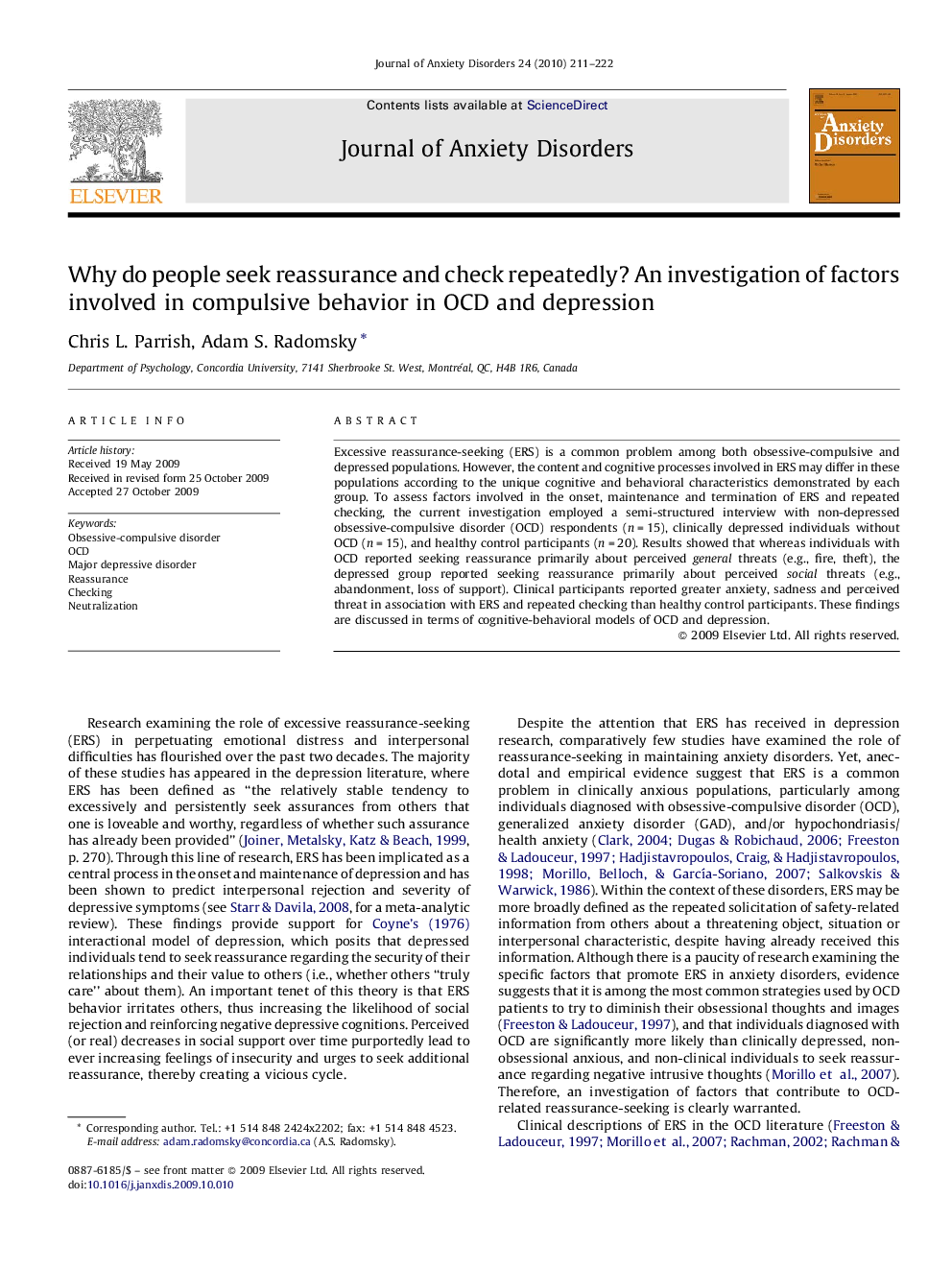| Article ID | Journal | Published Year | Pages | File Type |
|---|---|---|---|---|
| 909888 | Journal of Anxiety Disorders | 2010 | 12 Pages |
Excessive reassurance-seeking (ERS) is a common problem among both obsessive-compulsive and depressed populations. However, the content and cognitive processes involved in ERS may differ in these populations according to the unique cognitive and behavioral characteristics demonstrated by each group. To assess factors involved in the onset, maintenance and termination of ERS and repeated checking, the current investigation employed a semi-structured interview with non-depressed obsessive-compulsive disorder (OCD) respondents (n = 15), clinically depressed individuals without OCD (n = 15), and healthy control participants (n = 20). Results showed that whereas individuals with OCD reported seeking reassurance primarily about perceived general threats (e.g., fire, theft), the depressed group reported seeking reassurance primarily about perceived social threats (e.g., abandonment, loss of support). Clinical participants reported greater anxiety, sadness and perceived threat in association with ERS and repeated checking than healthy control participants. These findings are discussed in terms of cognitive-behavioral models of OCD and depression.
